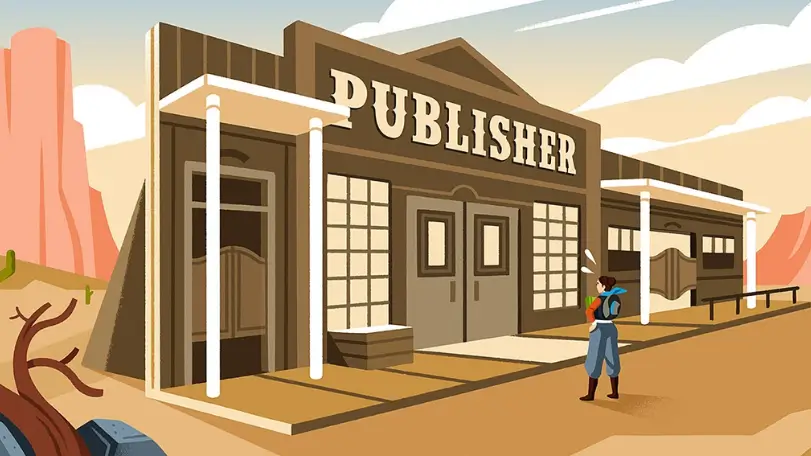We’ll publish your book for just $2,999!”. It sounds like a dream come true for many first-time authors. But more often than not, it turns into a costly nightmare. These too-good-to-be-true promises come from vanity publishers companies that make their money from authors, not book sales.
In this guide, we’ll break down what vanity publishers are, how they operate, red flags to watch out for, and most importantly, how to avoid getting trapped in their schemes.
What Is a Vanity Publisher?
A vanity publisher is a publishing company that charges authors upfront fees to publish their books. Unlike traditional publishers, who make money by selling books to readers, vanity presses profit directly from authors.
They may offer a package deal with editing, design, and marketing services, but the quality is often subpar, and the distribution is minimal.
How Vanity Publishers Differ from Other Models:
- Traditional Publishing: You don’t pay anything; the publisher pays you (via advance/royalties).
- Self-Publishing: You control the process and choose what to spend money on.
- Vanity Publishing: You pay them, lose rights, and often receive little in return.
How Vanity Publishers Work
Vanity presses often operate using persuasive marketing tactics that target inexperienced authors. Here’s how their typical sales funnel works:
- You submit your manuscript (or they solicit you).
- You’re told it has great potential no real editing/feedback is done.
- You’re offered a publishing package for $1,000 to $10,000+.
- They promise marketing, distribution, bestseller status (usually exaggerated or fake).
- You sign the contract and often give up creative or legal rights.
Red Flags to Watch Out For
Vanity publishers can look professional, but there are clear warning signs:
- They guarantee your book will be a bestseller.
- They ask for upfront fees or “contributions.”
- The contract lacks transparency.
- They pressure you to sign quickly.
- They offer bundled services with no flexibility.
- Their “editors” or “designers” have no real credentials.
Why You Should Avoid Vanity Presses
Vanity publishing can cost you more than just money:
- Financial Loss: Authors have paid thousands and seen no return.
- Rights Loss: You may give up your copyright or ISBN ownership.
- Reputation Damage: Bookstores and agents avoid vanity-published books.
- Frustration: No real support, poor print quality, broken promises.
Legitimate Alternatives to Vanity Publishers
Don’t worry, you have much better options:
1. True Self-Publishing
Platforms like Amazon KDP, IngramSpark, and Draft2Digital let you publish your book independently.
- You keep your rights
- Pay only for services you choose
- Total creative control
2. Hybrid Publishers
These publishers offer a mix of services and may charge a fee, but they are transparent, selective, and credible.
3. Traditional Publishers
They pay you to publish your book, but the process is competitive and often requires an agent.
How to Protect Yourself as an Author
Before signing anything, protect yourself with these steps:
- Research the publisher: Check for online reviews and warnings.
- Use watchdog groups: Sites like Writer Beware track scams.
- Never rush to sign a contract without reading it fully.
- Compare offers: If one sounds too good, it probably is.
Conclusion: You Deserve Better
Vanity publishers prey on your dreams, but you don’t have to fall for it. With more transparent and empowering options like self-publishing or hybrid models, you can control your author journey without getting scammed.
Frequently Asked Questions
Q1: Are vanity publishers illegal?
No, they are legal but ethically questionable. The issue is deceptive marketing and lack of value.
Q2: Is it ever okay to pay to publish?
Yes, in self-publishing, you pay service providers of your choice. The problem arises when you pay a company without transparency.
Q3: How can I tell if a publisher is legit?
Look for no upfront fees, selective acceptance, and clear contracts. Google their name + “scam” or “complaints.”
Q4: Can I get a refund from a vanity press?
Unlikely, unless there’s clear fraud. But you may still want to share your experience publicly to help others.

